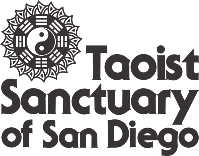These intense training seminars always give me pause. I see what could be, what level I could reach if I applied myself, and I get a taste of the absolute core and heart of taiji that our teachers offer to us. Then I return home, go back to work, and all of it becomes a memory, because I don’t make the time in my life to devote to taiji as this kind of pursuit. Of course it’s a choice, and I choose to work in a hospital, to make my “day job” my priority. Taiji serves as a periodic reset for my body and mind, and keeps me connected to my dear community of fellow taiji enthusiasts.
Is that ok? I think so. I won’t even know what’s possible unless I get those occasional glimpses. I’m at peace with the choices I have made. I am content knowing that I have the potential, that I’ve been given the tools, and that if I chose, I could progress more quickly in taiji. I am content with my slow but steady progress. I feel blessed that I am awarded the glimpses of the highest levels, and will continue to look forward to these as they are offered.
I have known people who have blamed the teacher for lack of progress. “Teachers keep secrets”, “teachers hide the true path”. That’s BS. The path has always been clear, and there are no secrets. It requires work and perseverance. It’s not magic. In turn, there are teachers who have blamed the student for the lack of progress. This is just as wrong. Taiji and Taoism teach us to be in the present, to be accepting of the now, and to look for how to live the most honest life within that now, not some other imagined existence that is full of “what ifs”. Teachers and students alike should practice this. No blame. It’s a partnership.
I’ve been thinking a lot about talent, and how some people seem to “get it” quickly, while others struggle for years to integrate the movement principles, with little success. Does talent matter? Does one need to have a predisposition to the art to progress to higher levels as defined by CXW, the Standard Bearer? Yes, but how does one define talent? Is it neurological talent? Talent in coordination? I think it’s more than that. I think physical talent will certainly move people along quicker in mastering the techniques of taiji. However, taiji is more than technique, and just like playing classical or jazz piano, it takes more than technique to bring the heart to the art. To bring the principles and techniques into the body, and profuse daily living with those principles – there is the talent.
Whether taiji is a vocation or avocation, it doesn’t matter. What matters is how you approach it, and how you live it. You have to own your own practice. To take the principles of taiji, apply them to life, then to turn around and apply them back to your own practice of anything – that’s the pinnacle of achievement, in my opinion.


